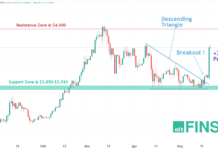Will states introduce their own digital currencies? Where are we with blockchain technology for document verification? This and more in our interview with Sergey Bondarenko.
Sergey Bondarenko is an independent blockchain expert and lecturer at the Deloitte Academy. He is a leading cryptocurrency figure in Ukraine and has been working closely with the National Bank as it researches the possible development of a digital currency.
‘The Ukrainian government is investigating many different technologies’, he explains, ‘not all of them blockchain based. Other countries that are spending resources on investigating cryptos, such as China and Russia, are doing so to get around economic sanctions and the ruling power of the dollar.’ China is even linking the Yuen to the gold standard to stabilize it and increase its value. However, Sergey believes that in five to ten years we will only have digital money, with multiple currencies issued in a decentralized fashion. He thinks the monopoly that Central Banks have had over currency will come to an end in due course.
Sergey has been working with Deloitte to develop Docsensus, which utilizes the immutability of the blockchain for recording important documents without fear of alteration. He hopes to develop this further in the near future.
As Sergey is at the forefront of Blockchain innovation in Ukraine, he offers his opinion on some of the exciting work that is being done there. Remme is a successful startup which he believes will dispense with the need for passwords in the future. Currently, passwords are cumbersome and too easy to hack. Remme’s authentication platform will make great changes in this area.
Sergey is also impressed by Romad, which promises to fight computer viruses as they are happening through its cloud-based A.I. Romad will only charge users when it wards off an attack and will otherwise be available free of charge.
Sergey sees huge changes ahead, in how governments operate. For him, this is more than an issue of technology: “It’s about changing the rules of the game. To create new forms of games. Currently, we are in a game with governments. It was spontaneously formed. But now we can design it in a new way using all the features of the decentralized system and be prepared that we will be more and more involved in all the governing processes of a nation.”
2016 saw a peak in people’s expectations of blockchain. It was, as Sergey puts it, ‘like first love’. Now people are more practical and are looking at the useful cases. In the end, it is only the useful blockchain projects with usable applications for real-world problems that will survive the current period. There are challenges ahead, such as regulation, but eventually, large-scale adoption of blockchain will evolve affecting larger aspects of society.















